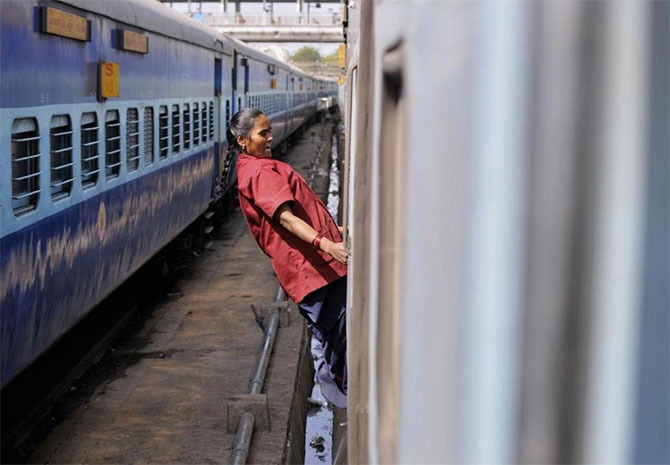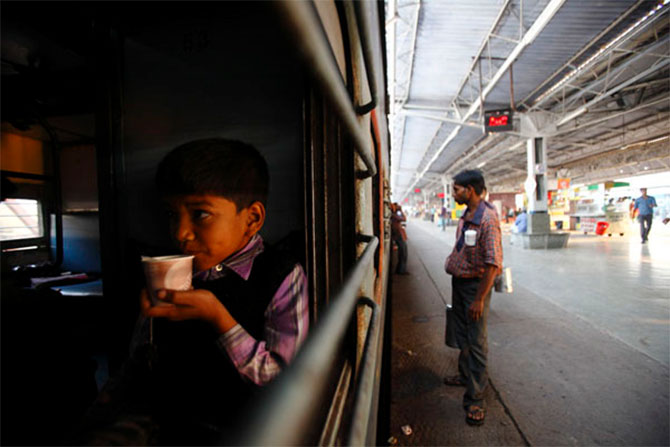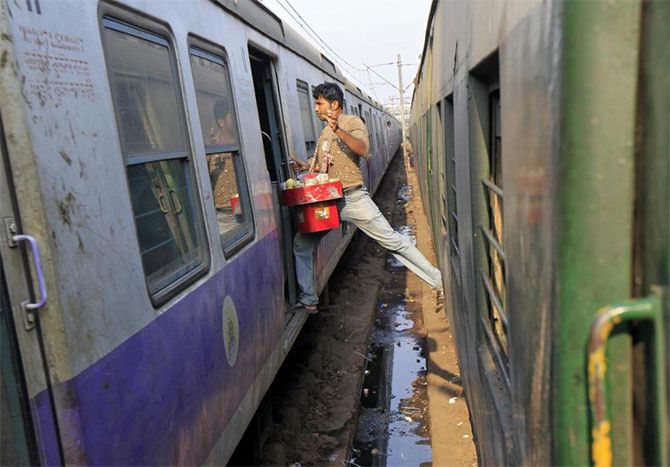Apart from rail mishaps, the coverage would take care of terrorist attacks and accidental fall of a passenger from a train and normal accidents, riots, robbery and dacoity

The Indian Railways (IR) has selected three insurance companies - Shriram General Insurance, ICICI Lombard General Insurance and Royal Sundaram General Insurance - for insuring its passengers.
To begin next month, it would be among the cheapest in the world, at a premium of 92p a passenger for coverage up to Rs 10 lakh. The three were selected through competitive bidding, among 17 companies.
At first, insurance would be available for those who book tickets online. Later, the scheme could be extended to season ticket travellers, where for a premium of Rs 200-300, they will get annual coverage.
“Irrespective of class, destination and distance to be travelled, the rate of premium and coverage would be uniform. Travellers who book tickets online through our website can opt for it giving a nominee’s name. Later, it might be extended to unreserved travellers and monthly season ticket holders,” said A K Manocha, chairman and managing director of Indian Railway Catering and Tourism Corporation (IRCTC), an IR subsidiary that handles online ticketing, catering and rail tourism.
In the case of death or permanent disability of the traveller, Rs 10 lakh will be provided. For permanent partial disability, the coverage extends to Rs 750,000; for hospital expenses, the coverage would be up to Rs 200,000. In addition, the insurance would provide Rs 10,000 for transportation of mortal remains. Apart from rail mishaps, the coverage would take care of terrorist attacks and accidental fall of a passenger from a train and normal accidents, riots, robbery and dacoity.

Of the three companies selected, each would get insurance policies on a rotation basis from an automated system.
Shriram General Insurance was the lowest bidder, quoting 92p. ICICI Lombard quoted 99p and Royal Sundaram Rs 1.15. The other two will have to match the lowest bid of 92p.
Others in the fray were HDFC Ergo, Reliance General Insurance, Apollo Munich Health Insurance, New India Assurance, Tata AIG, Bharti Axa, National Insurance, Iffco Tokio, Bajaj Allianz, Oriental Insurance, Star Health & Allied Insurance, CholaMandalam MS, United India Insurance and Future Generali India.
“There is no data available to suggest this is the cheapest in the world. However, it is sure that this premium is way below the global market standards. Though travel insurance compensation for flights are higher, ranging about Rs 75 lakh, the premium is also on the higher side, Rs 2,000-3,000,” said V Ramakrishna, founder of India Insure, a Hyderabad-based insurance broking house.
Compared to the proposed railway insurance, which comes at 9.5p per Rs 100,000 cover, airline insurance comes to Rs 26 at the lower end of the premium.
The railway scheme is in line with the present government’s policy of affordable insurance schemes like the Pradhan Mantri Jeevan Jyoti Bima Yojana and Suraksha Bima Yojana, where for an annual premium of Rs 330 and Rs 12, respectively, consumers get coverage of up to Rs 200,000.

Viability
Some doubt if the companies selected would find this sufficiently viable. About 59 per cent of IR tickets are booked online. The IRCTC site sees 3.2 million average daily user log-ins, with an average of 550,000 tickets booked a day, for about a million passengers.
“I doubt whether this would be viable for the companies. Earlier, too, the railways used to buy a similar scheme. It needs to be seen whether IR is washing its hands off from the huge compensation they have to pay to passengers in an accident, putting the onus completely on insurance companies. It would only be viable if there are no major accidents in a year,” Ramakrishna added.
Since 1994, the railways had been paying an annual premium to insurers, through which those on a valid ticket in a passenger train, as also platform ticket holders, were insured. According to media reports, it was discontinued in 2008-09, citing higher premiums as a reason. Since then, IR has been compensating for deaths and injuries from its revenue.
On an average, about 15,000 people are said to die in rail mishaps yearly. According to the National Crime Records Bureau, in 2014, 28,360 rail accidents were reported, in which 3,882 were injured and 25,006 lost their lives.
Photographs: Sailesh Andrade/Reuters











 © 2025
© 2025